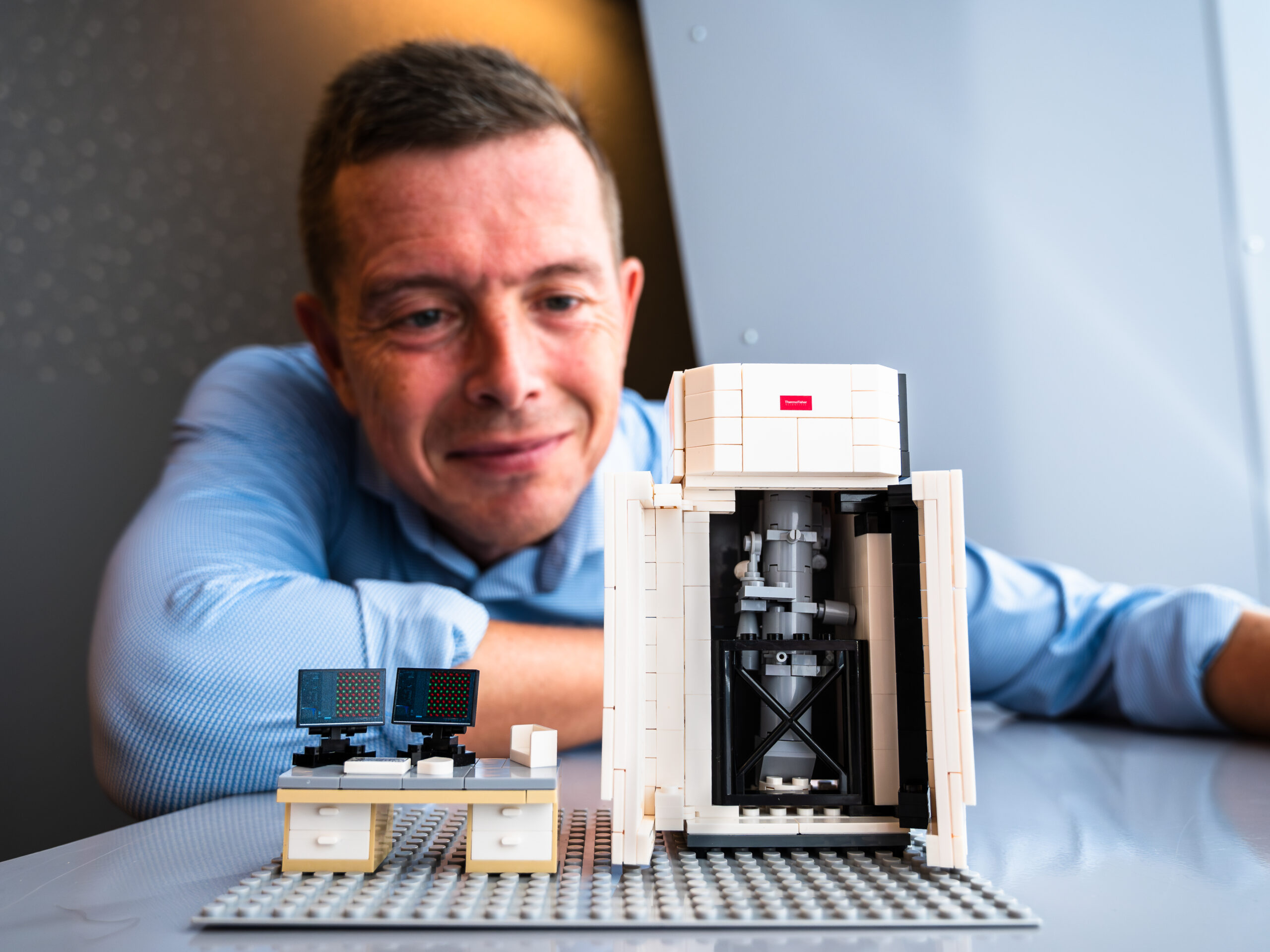
Thermo Fischer Scientific will deliver the new microscope to LiU. They provided a lego version in the meantime.
Next generation STEM at LiU procured
Two years after the original grant, the procurement of the next generation advanced scanning transmission electron microscope to ARTEMI, has finally come to a conclusion.
The ARTEMI grant from the Swedish Infrastructure Research Council stated that a new advanced microscope was to be installed at Linköping University. Due to a weak Swedish Krona and soaring prices for electronics during the pandemic, another grant from the Wallenberg Initiative for Sustainable Materials (WISE) was required to start the procurement, reaching an award decision in the beginning of the summer. It is now clear that Thermo Fisher Scientific will install their next generation instrument, the “Illiad”, in the dedicated low noise building Ångströmhuset at LiU. The cost for the new instrument is 53 MSEK and it will replace the former microscope, installed in 2011 (at a cost of 43 MSEK). Delivery is expected in December 2025, with the installation process spilling over to early 2026.
The new instrument will exceed the current microscopes performance in every imaginable way.
“The most intuitive key parameter for a high-end microscope is resolution” says Per Persson, director of ARTEMI and Professor in Thin Film Physics at LiU. “The new instrument will of course be better at this than the present, but spectroscopy will be nothing but revolutionary. We will be able to acquire spectra with detail on par with a synchrotron such as MAXIV, but with the unparalleled resolution of an electron microscope.”
The new microscope comes with detectors that allow simultaneous capture of changes in structure and chemistry at high speed and high resolution, hence, the large amount of data will require new local solutions for storage and management.
“We will be able to explore materials with a level of detail that has not been possible in the past. This microscope will benefit a large researcher community in Sweden, both in materials science, inorganic chemistry and in adjacent disciplines”, says Per Persson.
